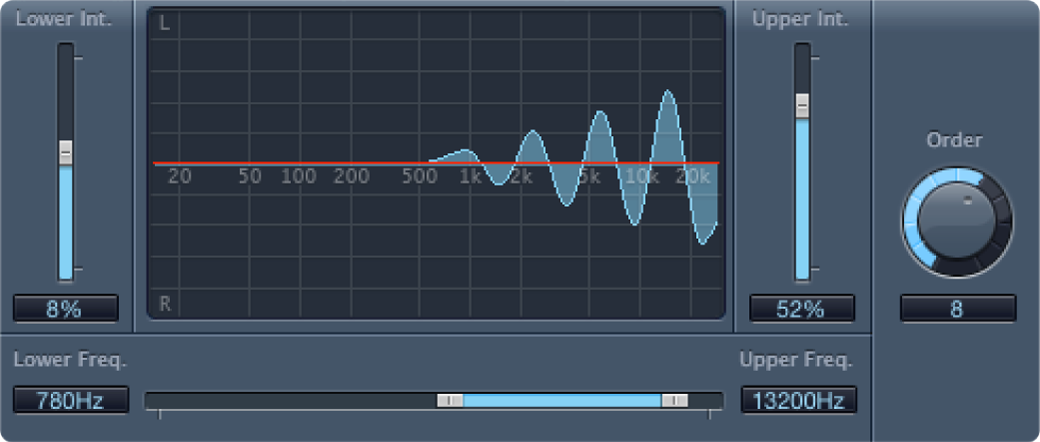Stereo Spread controls in Final Cut Pro for Mac
Stereo Spread is typically used when mastering. There are several ways to extend the stereo base (or perception of space), including use of reverbs or other effects and altering the signal’s phase. These options can all sound great, but may also weaken the overall sound of your mix by ruining transient responses, for example.
Stereo Spread extends the stereo base by distributing a selectable number of frequency bands from the middle frequency range to the left and right channels. This is done alternately—middle frequencies to the left channel, middle frequencies to the right channel, and so on. This greatly increases the perception of stereo width without making the sound totally unnatural, especially when used on mono recordings.
To add the Stereo Spread effect to a clip and show the effect’s controls, see Add Logic effects to clips in Final Cut Pro for Mac.

Lower Int. (Intensity) slider and field: Set the amount of stereo base extension for the lower frequency bands.
Upper Int. (Intensity) slider and field: Set the amount of stereo base extension for the upper frequency bands.
Note: When setting the Lower Int. and Upper Int. sliders, be aware that the stereo effect is most apparent in the middle and higher frequencies, so distributing low frequencies between the left and right speakers can significantly alter the energy of the overall mix. For this reason, use low values for the Lower Int. parameter, and avoid setting the Lower Freq. parameter below 300 Hz.
Graphic display: Shows the number of bands the signal is divided into, and the intensity of the Stereo Spread effect in the upper and lower frequency bands. The upper section represents the left channel, and the lower section represents the right channel. The frequency scale displays frequencies in ascending order, from left to right.
Upper Freq.(Frequency) and Lower Freq. slider and fields: Determine the highest and lowest frequencies that will be redistributed in the stereo image.
Order knob and field: Determine the number of frequency bands that the signal is divided into. A value of 8 is usually sufficient for most tasks, but you can use up to 12 bands.
Download this guide: PDF